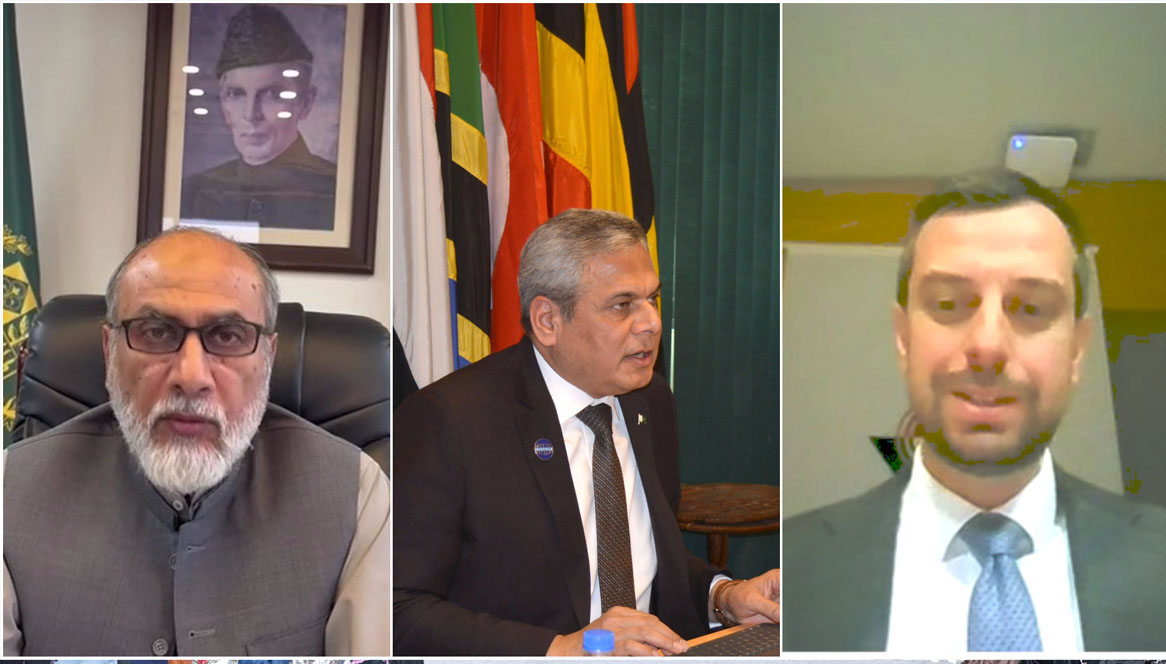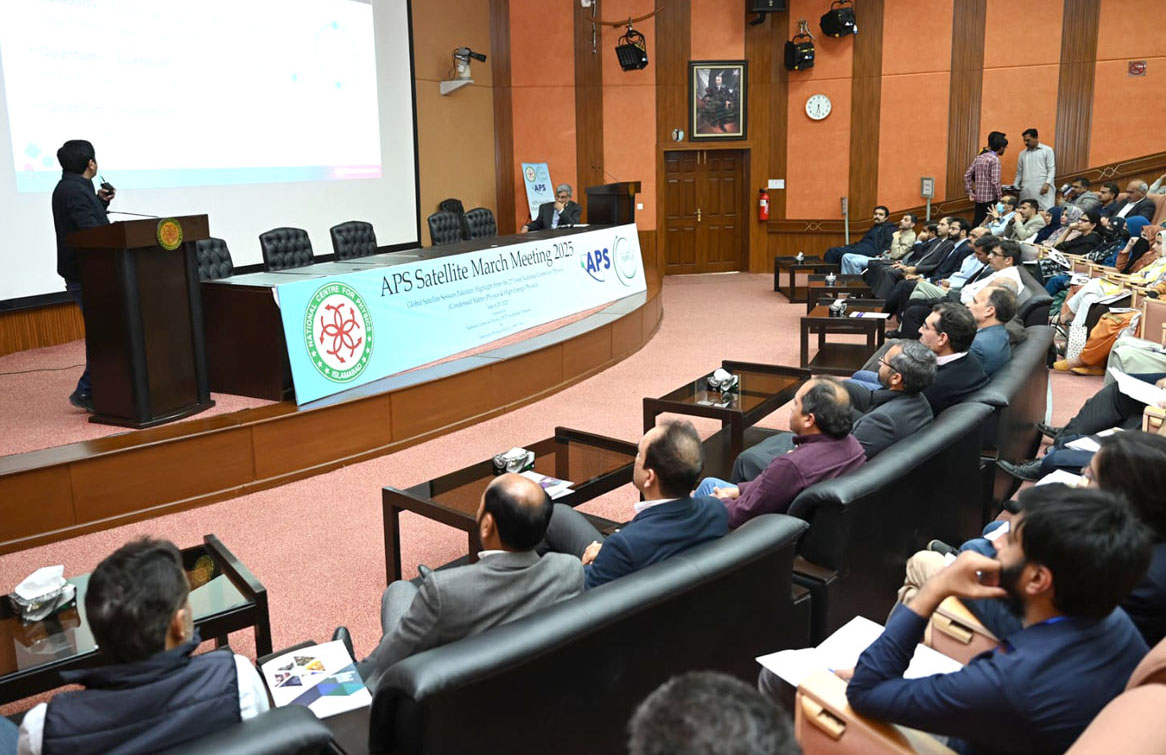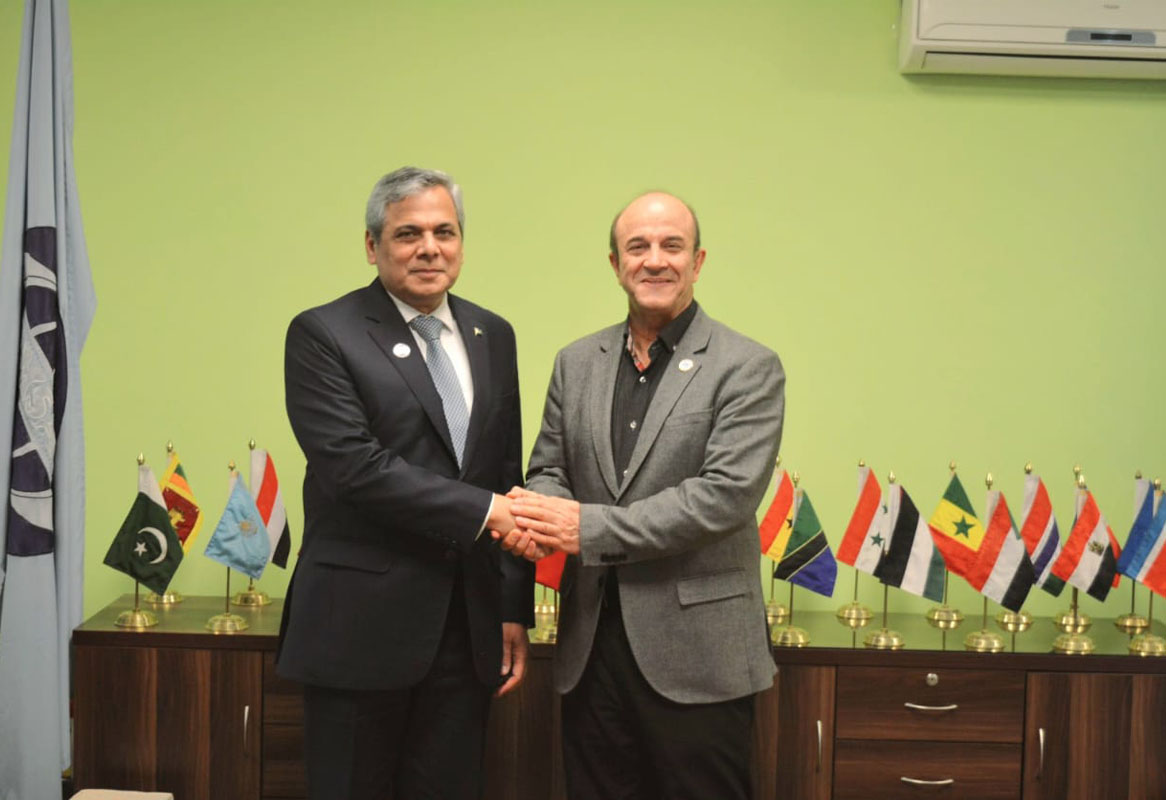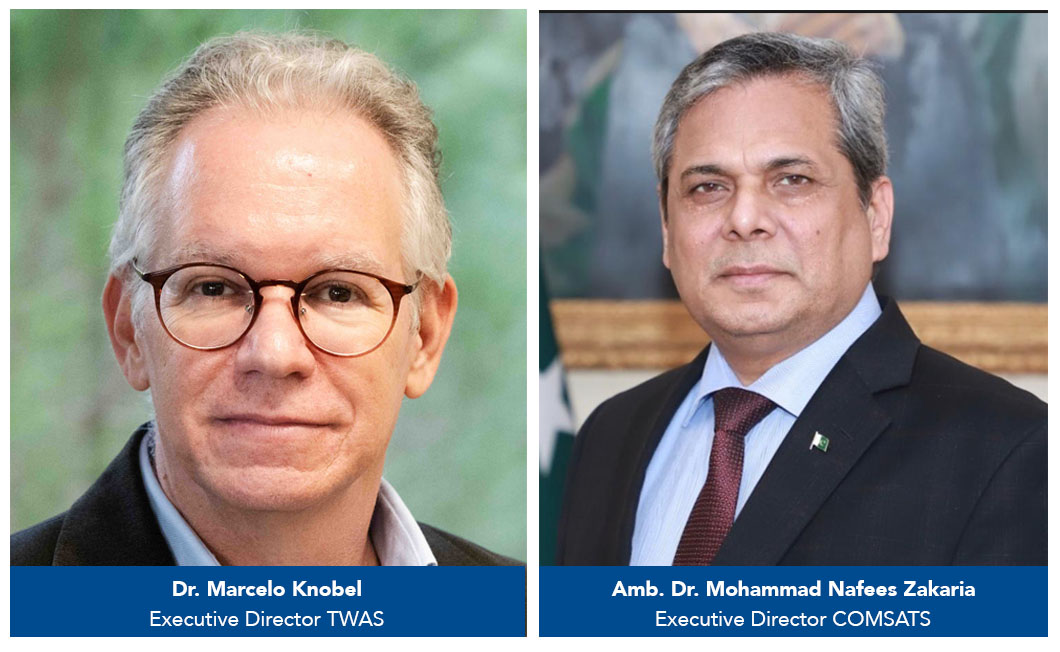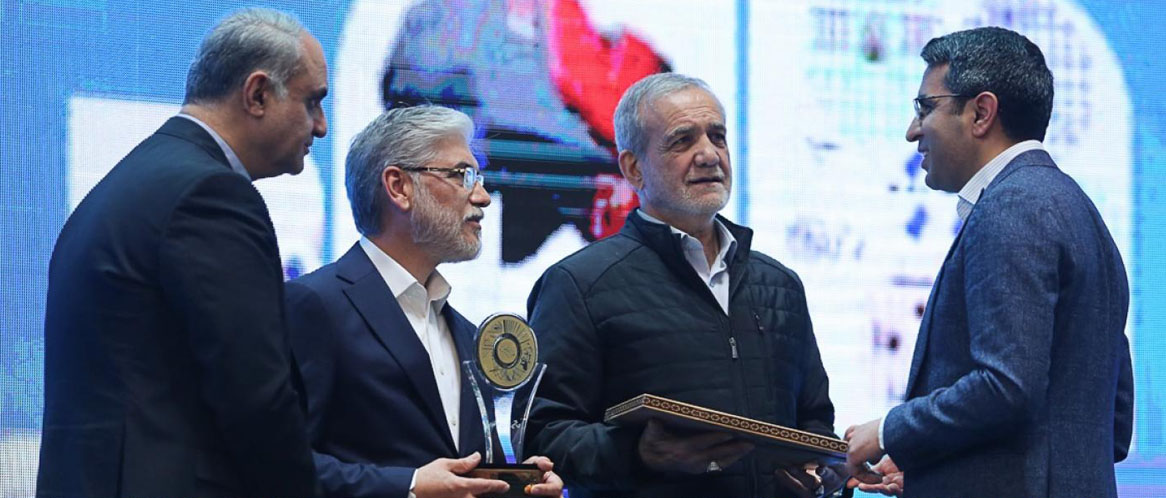On September 21, 2010, Executive Director COMSATS, Dr. I. E. Q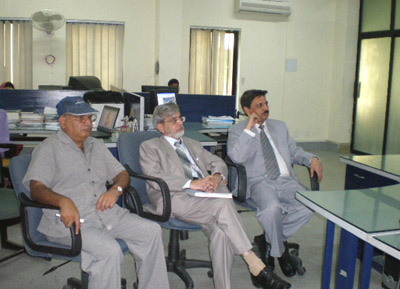 ureshi, visited the Pakistan Council of Research in Water Resources (PCRWR), Islamabad, Pakistan, to hold a meeting with its Chairman, Dr. M. Aslam Tahir, and to visit the National Water Quality Laboratory (NWQL) of PCRWR. Dr. Qureshi was accompanied by Dr. Amir H. Malik, HEC Foreign Professor at CIIT; Dr. Hasibullah, Advisor (I.A) COMSATS; and Engr. Farhan Ansari, Assistant Director (Programmes) COMSATS. PCRWR is an apex autonomous body under the Ministry of Science and Technology, established with the objective to conduct, organize, coordinate and promote research in all aspects of water-resource management, such as irrigation, drainage, surface and ground water management, ground water recharge, watershed management, desertification control, rainwater harvesting, water quality assessment and monitoring, and development of innovative water-resource management techniques, etc.
ureshi, visited the Pakistan Council of Research in Water Resources (PCRWR), Islamabad, Pakistan, to hold a meeting with its Chairman, Dr. M. Aslam Tahir, and to visit the National Water Quality Laboratory (NWQL) of PCRWR. Dr. Qureshi was accompanied by Dr. Amir H. Malik, HEC Foreign Professor at CIIT; Dr. Hasibullah, Advisor (I.A) COMSATS; and Engr. Farhan Ansari, Assistant Director (Programmes) COMSATS. PCRWR is an apex autonomous body under the Ministry of Science and Technology, established with the objective to conduct, organize, coordinate and promote research in all aspects of water-resource management, such as irrigation, drainage, surface and ground water management, ground water recharge, watershed management, desertification control, rainwater harvesting, water quality assessment and monitoring, and development of innovative water-resource management techniques, etc.
The purpose of the meeting was to: assess the capacity an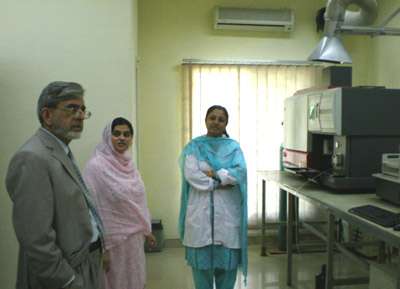 d potential of PCRWR; explore possibilities for a potential scientific collaboration between PCRWR and COMSATS; recommend the testing of water purifiers being provided to the flood affectees by various NGOs, and discuss the possibility of locally manufacturing low-cost water treatment technologies for meeting the present and future potable water needs of the country. Dr. Qureshi was informed about various activities of PCRWR, including the assistance it provides to the local NGOs in installing water-treatment plants in the flood affected areas; capacity-building programmes for managers and technicians/sub-engineers, and manufacturing of low-cost water testing and treatment technologies. It was learnt that out of 10,000 professionals working in water-resource management in Pakistan, 6,000 have been trained by PCRWR through 1-week intensive course for technicians and 3-day course for managers. Water testing and treatment technologies being manufactured at PCRWR include: bacteria, turbidity and arsenic removal kits; chlorinators for water purification; as well as low-cost kits/instruments for arsenic testing, bacteria testing, and water and salinity monitoring.
d potential of PCRWR; explore possibilities for a potential scientific collaboration between PCRWR and COMSATS; recommend the testing of water purifiers being provided to the flood affectees by various NGOs, and discuss the possibility of locally manufacturing low-cost water treatment technologies for meeting the present and future potable water needs of the country. Dr. Qureshi was informed about various activities of PCRWR, including the assistance it provides to the local NGOs in installing water-treatment plants in the flood affected areas; capacity-building programmes for managers and technicians/sub-engineers, and manufacturing of low-cost water testing and treatment technologies. It was learnt that out of 10,000 professionals working in water-resource management in Pakistan, 6,000 have been trained by PCRWR through 1-week intensive course for technicians and 3-day course for managers. Water testing and treatment technologies being manufactured at PCRWR include: bacteria, turbidity and arsenic removal kits; chlorinators for water purification; as well as low-cost kits/instruments for arsenic testing, bacteria testing, and water and salinity monitoring.
Matters related to the availability of water treatment/testi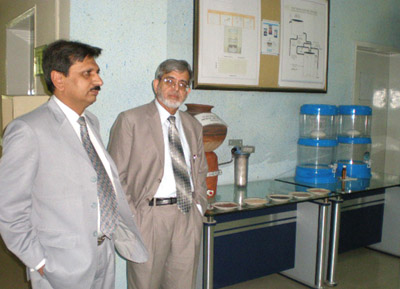 ng labs in the country, need of water standardization, national and international collaboration of PCRWR, and efficacy of various locally manufactured as well as imported water purifiers were also discussed during the meeting. Dr. Qureshi laid emphasis on creating synergy among the organizations/institutions of the country working in the field of water-resource management, for the benefit of the masses. Dr. Qureshi was of the view that the organizations like PCRWR should develop strong linkages with the private sector and academia. He invited Dr. Tahir, who is also the National Project Coordinator for United Nations University (Japan), to visit Islamabad and Abbottabad campuses of CIIT.
ng labs in the country, need of water standardization, national and international collaboration of PCRWR, and efficacy of various locally manufactured as well as imported water purifiers were also discussed during the meeting. Dr. Qureshi laid emphasis on creating synergy among the organizations/institutions of the country working in the field of water-resource management, for the benefit of the masses. Dr. Qureshi was of the view that the organizations like PCRWR should develop strong linkages with the private sector and academia. He invited Dr. Tahir, who is also the National Project Coordinator for United Nations University (Japan), to visit Islamabad and Abbottabad campuses of CIIT.
Dr. Qureshi also visited different sub-laboratories of the National Water Quality Laboratory (NWQL) to gather first hand information of the facilities available. These were: chemical lab, microbiology lab, waste water lab, and the organic lab. He was pleased to note that NWQL is ISO 17025 certified and has recognition in America and Europe. During the visit, Dr. Tahir showed the equipment and facilities available at the Laboratory and explained different procedures of testing water. Dr. Qureshi praised the determination and work ethics of the NWQL staff.
Later, a visit was conducted to RS/GIS & Hydrology Modeling Centre of PCRWR, 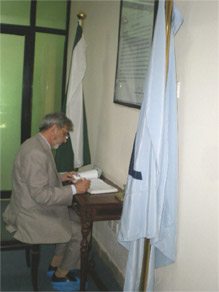 where a presentation was delivered to acquaint the visitors with the activities of the centre.
where a presentation was delivered to acquaint the visitors with the activities of the centre.
PCRWR was found to have tremendous potential for national/international collaboration in the area of water-resources, and manufacturing innovative cost-effective technologies for water testing and treatment.


